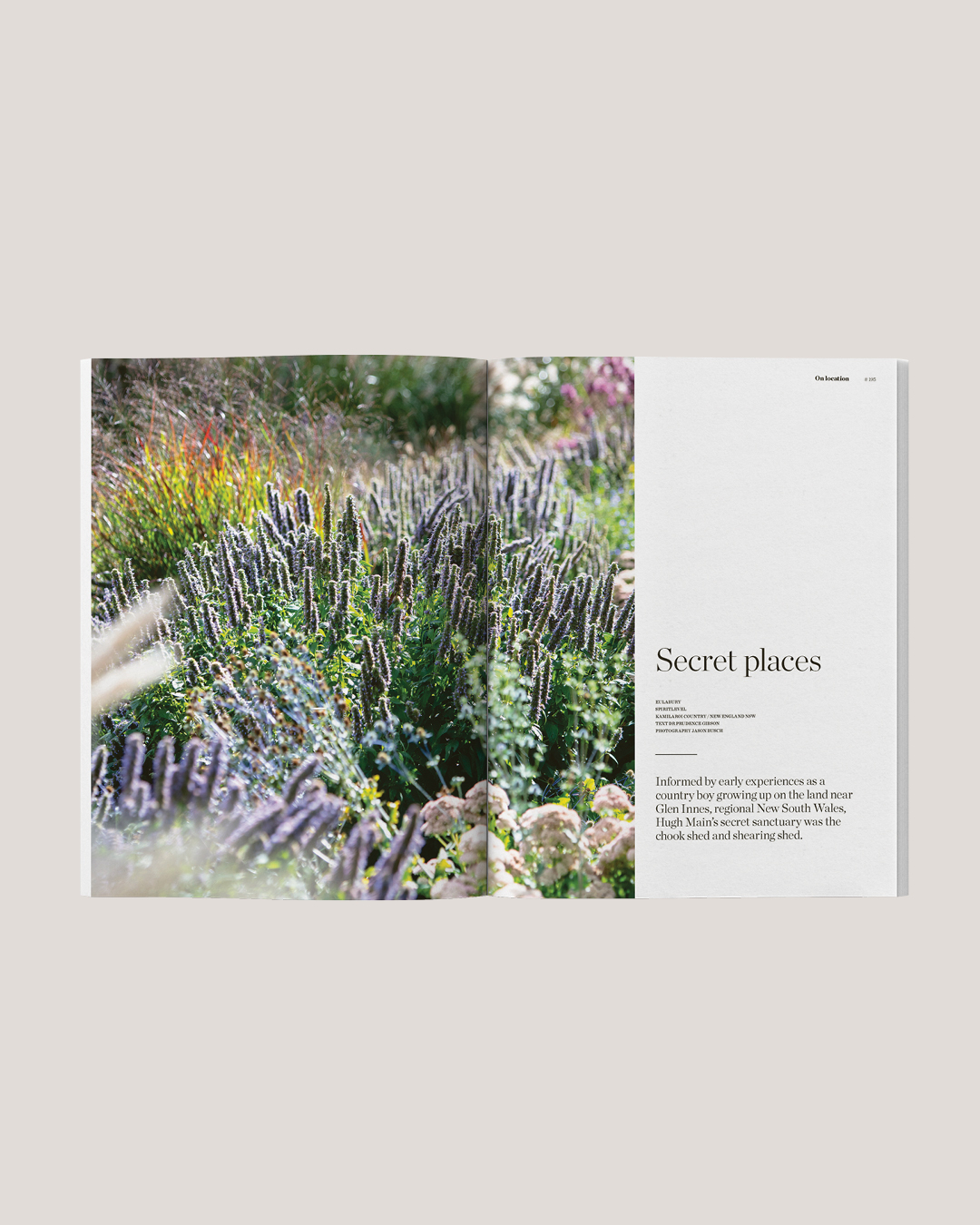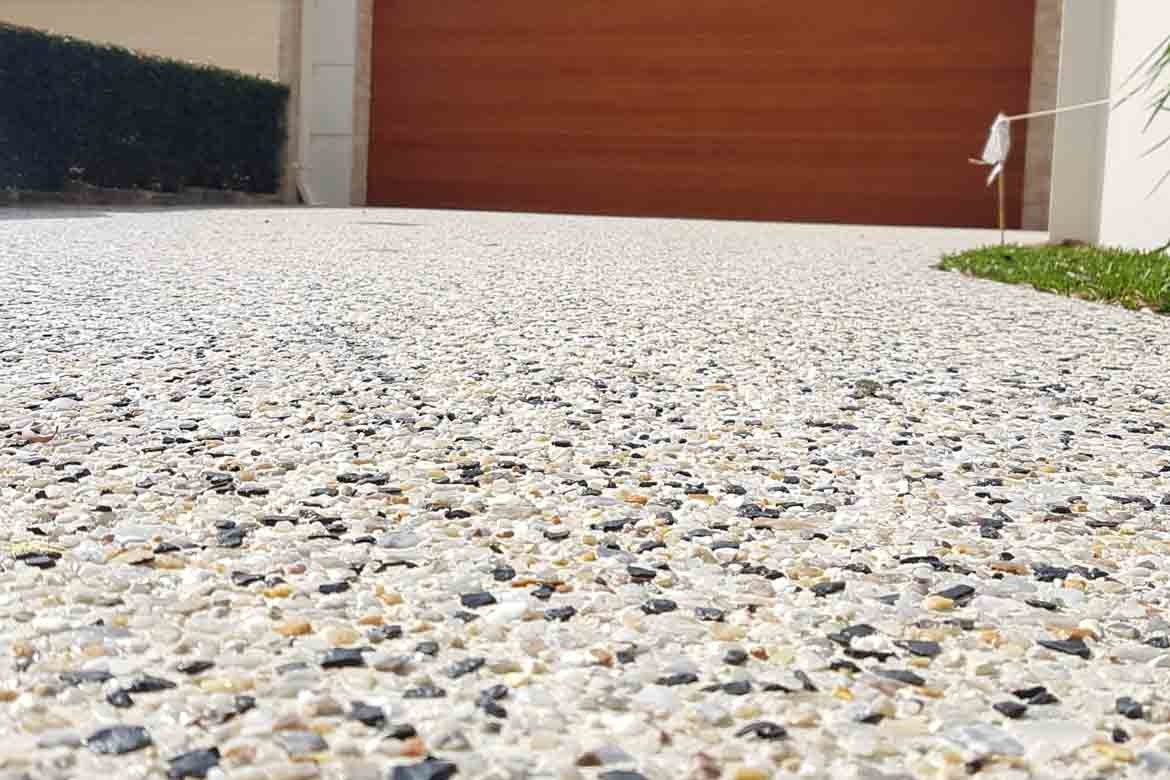What is exposed aggregate concrete?
Exposed aggregate is a type of washed concrete finish which has visible aggregates such as pebbles, rocks and sand. All concrete could be given an exposed aggregate finish by removing the surface layer to reveal the rough aggregate underneath. Exposed aggregate concrete is not as smooth as regular concrete and therefore has more traction. This is what makes it popular for driveways and outdoor areas, because it is less slippery in the rain.
Exposed aggregate is one of the most popular concrete finishes in Australia, especially outdoors. Exposed aggregate is common around pools, driveways, al frescos, pathways, and commercial areas such as warehouses or large shopping centres. It is also known as washed concrete and exposed concrete. Recently, exposed aggregate has seen a boom for interior use as designers come to appreciate the aesthetic.
Like all concrete types, exposed aggregate is extremely durable. Exposed aggregate can last up to 30 years if properly maintained. This is about as durable as regular concrete, although the textured surface of exposed aggregate may wear somewhat faster.
How to do exposed aggregate concrete at home
DIY-ing an exposed aggregate floor or path is possible, but not easy. It is also a time-consuming process. To get a washed aggregate finish without the professional tools, you will have to brush off the top layer of the cement by hand while it is still wet.
This means every inch of the concrete surface will have to be manually brushed, so it is best to leave that for small projects. To seal exposed aggregate you will most likely need to acid wash the surface after the concrete has cured. This can be very difficult. If you have not had experience mixing cement and laying concrete before, this may not be the right project for you.
Advantages of washed aggregate concrete
Exposed aggregate concrete usually costs around $100-$150 per square metre including the installation labour costs. This is roughly double the price of regular concrete. However, exposed aggregate has numerous benefits that make it an appealing option. The main benefits of exposed aggregate are:
- Durability: exposed aggregate is extremely tough and will last for decades without requiring maintenance or intensive cleaning. Standard concrete has a weaker surface that is more susceptible to water damage and cracking.
- Safety: exposed aggregate is a rougher surface than standard concrete, which makes it much easier to gain traction. This is important for driveways as car wheels need to be able to grip rather than spin out. It also means that exposed aggregate is safer to walk on, because the slip-rating is lower. This is doubly true in the rain, because standard concrete can become as slippery as ice.
- Easy installation: exposed aggregate does not require as many specialized tools as other concrete finishes do (for example, polished concrete). Exposed aggregate can even be installed by non-professionals, although you will want to be very careful. The ease of installation makes it more affordable than some other concrete types, though it is still more expensive than standard concrete.
- Aesthetic appeal: exposed aggregate has a slightly rugged and dynamic appearance that many enjoy. There is also a huge variety in the amount of colours, types and styles available. No two exposed aggregate floors are the same, so you can be sure that you are getting a unique look and finish with your concrete.
- Ethical: exposed aggregate can be made with a number of recycled materials. It can even be made with discarded industrial products such as slag, helping to reduce waste. At the end of its life, it can be repurposed into asphalt roadways or to create more concrete product.
Exposed cement aggregate: price per m3 and the best ideas for home
10. White
Speckled white is a less common colour for exposed aggregate, which makes it all the more special. White concrete has a sophisticated elegance that would look right at home next to a luxury pool.
09. Grey
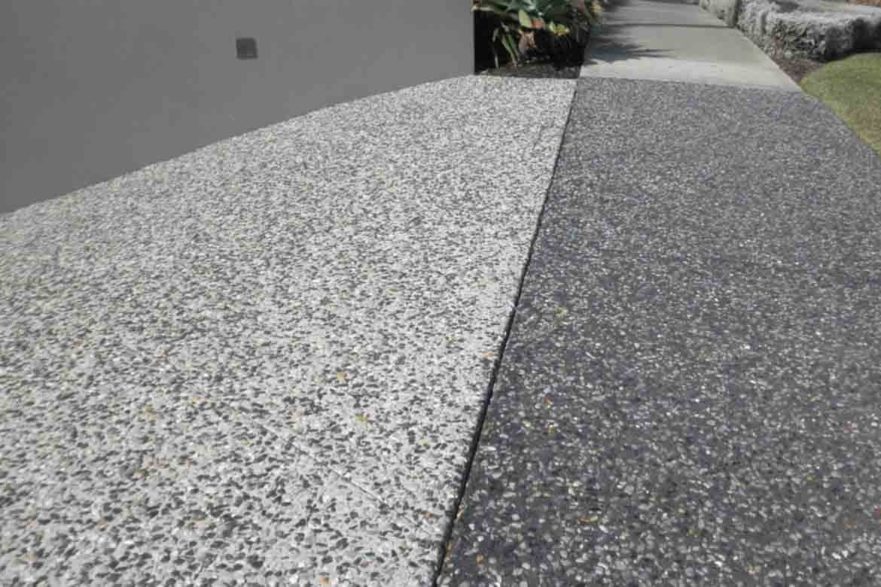
Grey is a classic colour for exposed aggregate. It is neutral and unassuming, making it the ideal choice for modern driveways.
08. Steps
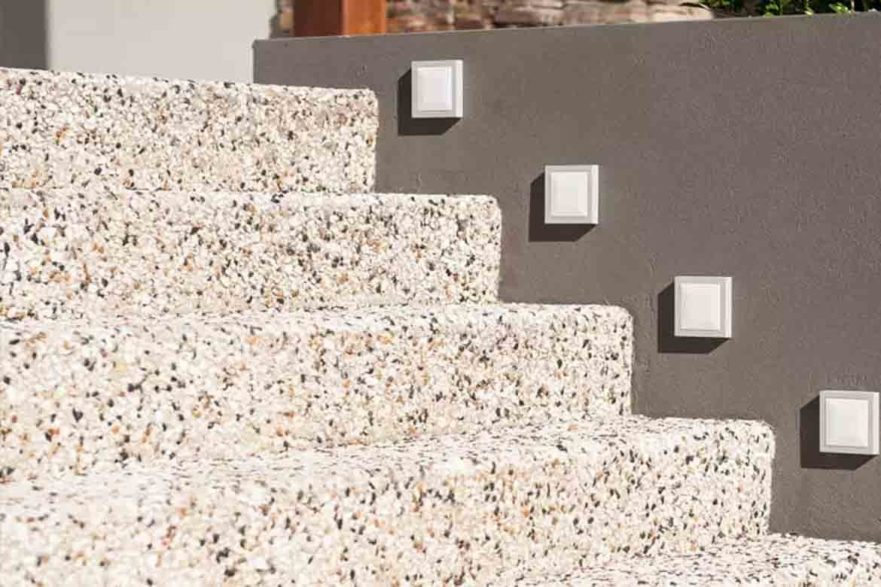
Exposed aggregate gives concrete surfaces an extra bit of grip which is perfect for boosting the safety of your outdoor stairs.
07. Colourful
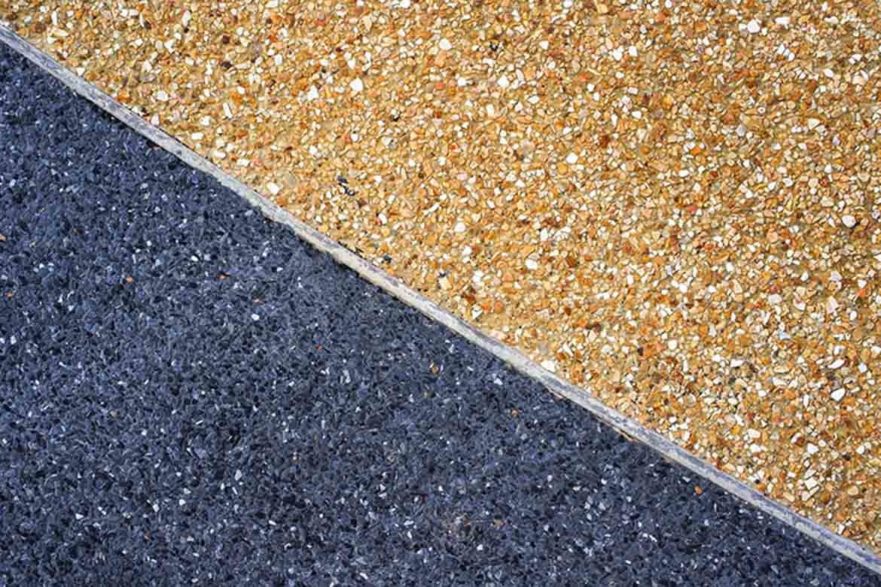
Exposed aggregate can vary greatly in colour, from warm to cool finishes. Consider a colour which will match the façade of your house and overall design commitments.
06. Gloss
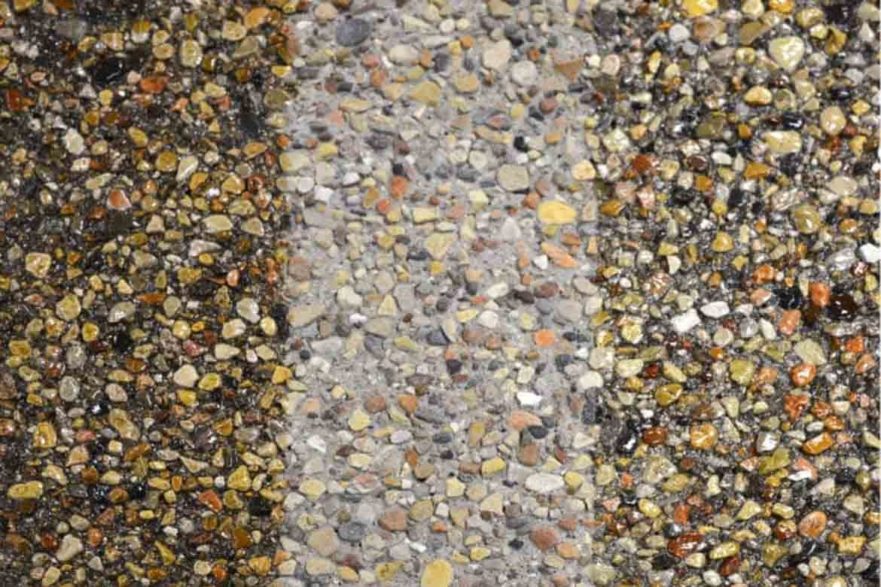
All concrete must be sealed after it has cured in order to preserve its condition. Sealing can also change the appearance and finish of the concrete from matte to glossy. Be sure to find the right concrete sealer for long-lasting protection – see here for a list of the best sealers available in Australia.
05. Patio
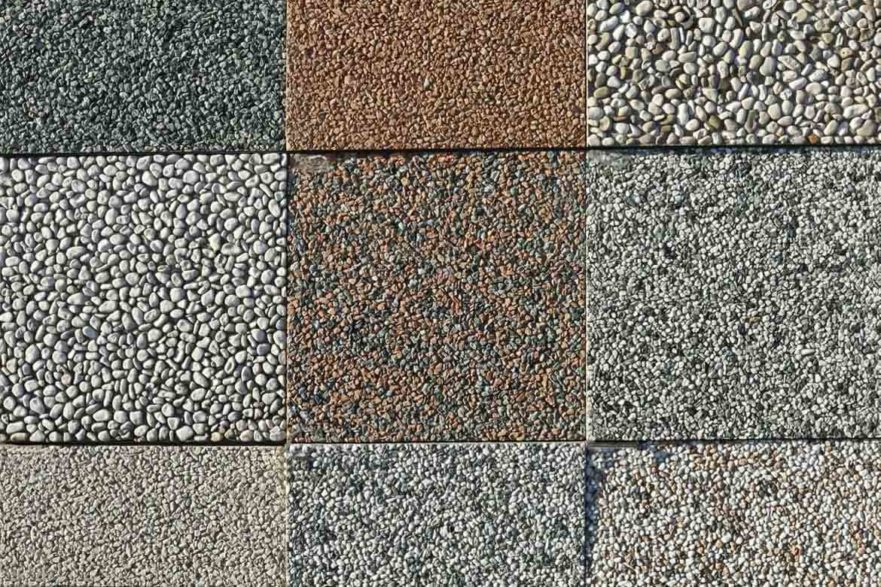
Exposed aggregate concrete is the perfect material to create a durable and beautiful outdoor patio space for entertaining.
04. Polished exposed aggregate
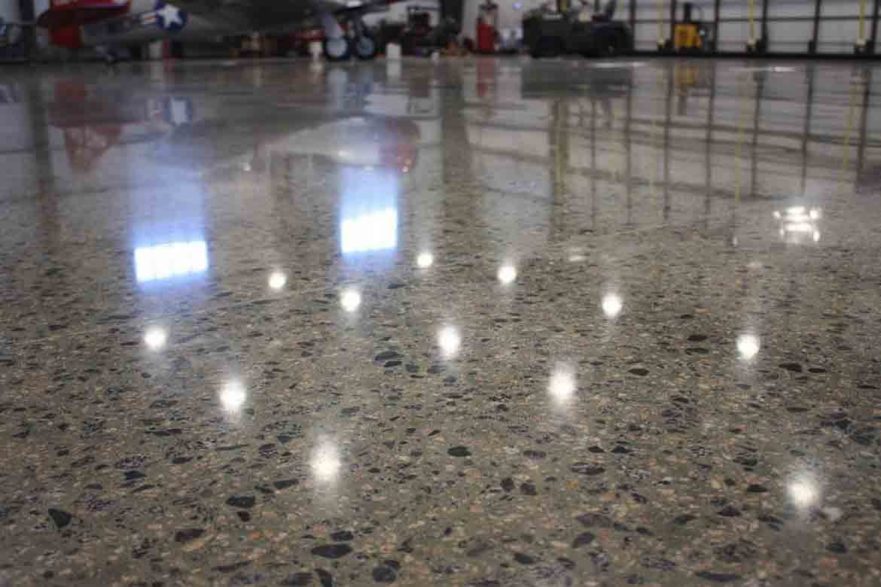
Modern exposed aggregate interiors are almost all made from polished concrete. Polished concrete is concrete which has been ground, treated and polished with resin-bond diamond in a multi-step process. This process makes the concrete reflect light and appear shiny. Polished aggregate concrete floors are common in large commercial areas such as shopping centers all across Australia, from Adelaide to Perth.
03. Exposed aggregate driveway
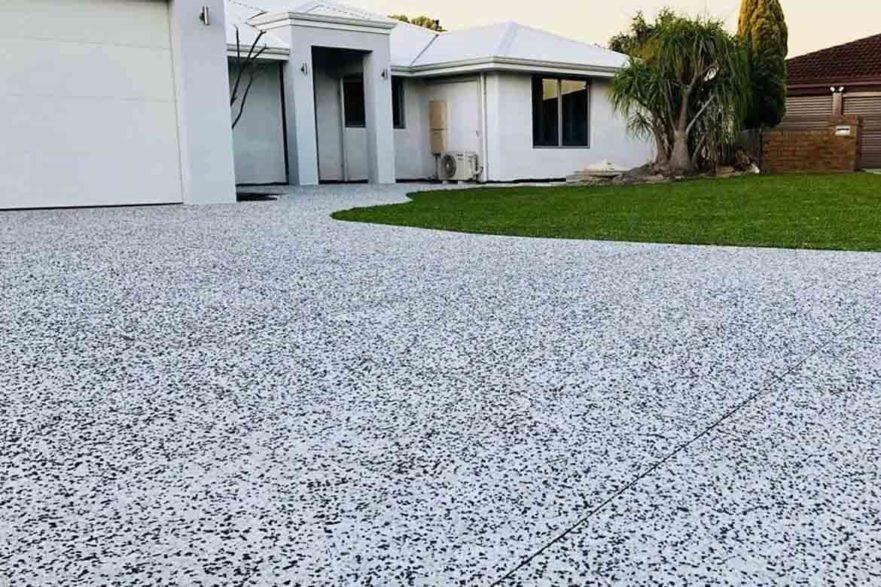
The exposed aggregate driveway cost per square metre in Melbourne is around $100-$150 (including the cost of installation labour). Exposed aggregate is cheaper than stamped concrete, but more expensive than regular concrete for the expertise it requires in installation. However, an exposed aggregate driveway provides a safe and non-slip road which will ensure the smoothest driving and parking for your cars over the decades.
02. Exposed aggregate pavers
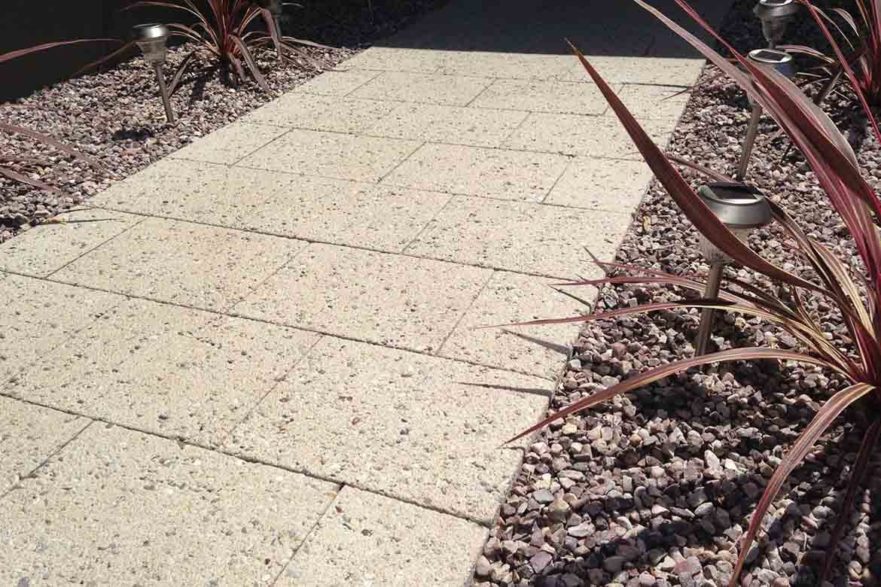
Exposed aggregate pavers are charming and stylish. They are also more versatile than poured concrete because you can replace or move them without much issue.
01. Around pool
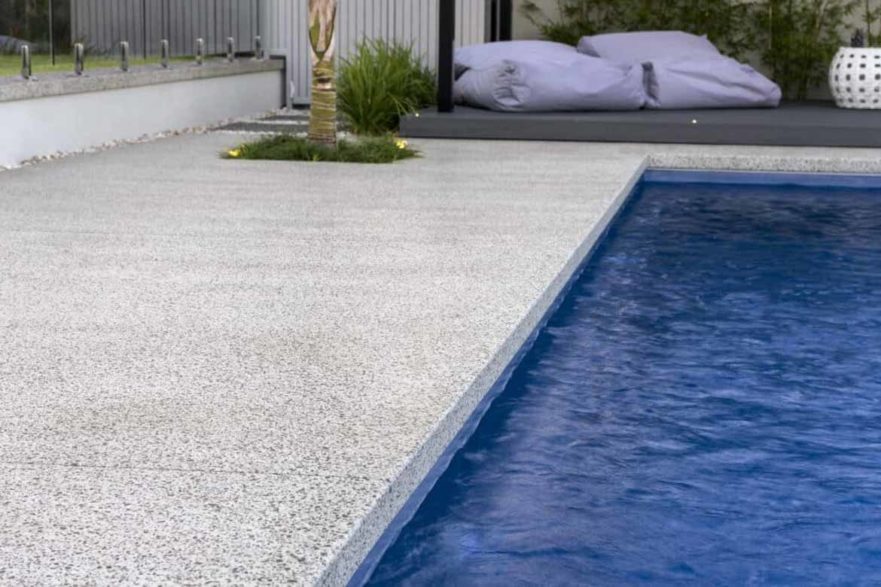
The number one application for exposed aggregate is by the poolside. This is because it is a very safe material with enough grip to prevent slipping in water. It is also very beautiful and will last for decades thanks to its waterproofing abilities.
